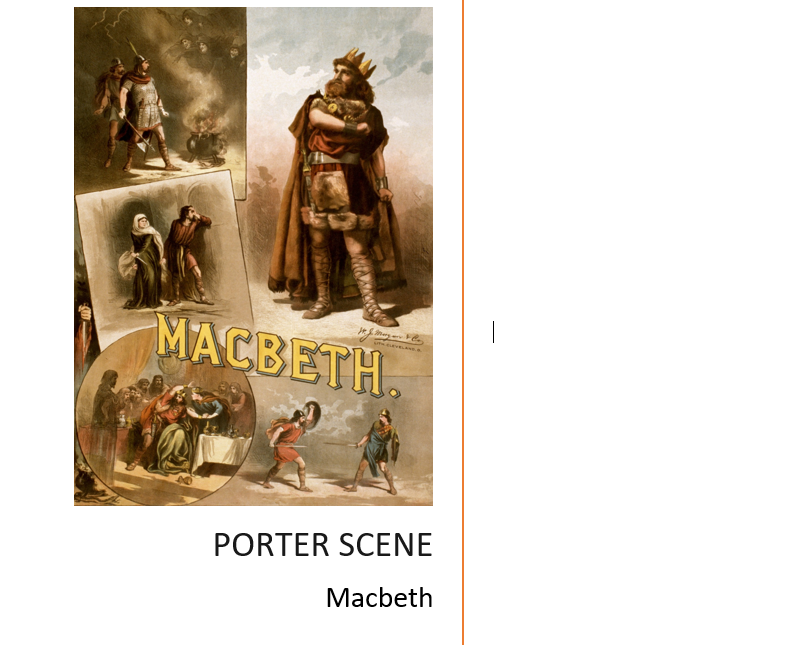
‘The Porter Scene’ in ‘Macbeth’
‘The Porter Scene’ (Act II, scene III) in Shakespeare’s Macbeth has elicited varied critical responses. It has been described as “un-Shakespearean”; it has even been looked upon as interpolation. But it has also been praised as an expression of Shakespeare’s dramatic genius. ‘The Porter Scene’ merits critical attention for more than one reason. Firstly, the scene is theatrically necessary because it gives the actor, who plays Macbeth’s role enough time for washing his hands and changing his clothes. Secondly, it provides comic relief at a time when tension is too high for the audience. Moreover, the drunken Porter’s speech is, in a sense, a commentary on Macbeth’s dastardly deed-the murder of Duncan.
‘The Porter Scene’ adds to the horror and gloom of the play. Kenneth Muir remarks, “…it is there to increase our feeling of horror. We are never allowed to forget throughout the scene that a murder has been committed and that it is about to be discovered.” Indeed, when, and how Macbeth will be exposed adds to the suspense of the play. The drunken porter identifies himself with the porter of hell-gate. Macbeth’s castle of which he is the porter, is nothing short of hell. Inverness is where Lady Macbeth has invoked the murdering ministers and Macbeth has called on the stars to hide their fires. Inverness is where the innocent king has been killed by none else but the host. Even as the porter imagines himself in hell, the audience identifies Inverness with hell.
The Porter’s speech makes one reflect on the theme of ‘sin and damnation’, which is central to the play. The tailor, the Jesuit equivocator, and the farmer, who enter hell, have committed acts that remind us of Macbeth. The tailor has committed the sin by storing food grains because of avarice, and the Jesuit has committed the sin of equivocation. Just as for the farmer, the shortcut to getting rich is storing food grains, so Macbeth steals somebody else’s garment; like the Jesuit conspirator, Macbeth equivocates to deceive others.
Like the three damned souls, Macbeth acts in a manner quite inappropriate to his circumstances and is exposed and punished. Kenneth Muir remarks, “The implication with farmer, equivocator, and tailor is not merely that they go to hell for sins; they are caught out by over-reaching themselves.” Clearly Macbeth, too, is an over-reach. The damnation of the farmer, the equivocator, and the Jesuit conspirator are damned in hell, but Macbeth’s damnation takes place here and now in his own castle, later in his own country which he unlawfully rules as a traitor. He turns Scotland into hell, where he rules like a damned soul. In his created hell Macbeth suffers infinitely and receives universal censure.
———————————————–
Work-cited page
1. Hubbard, S. (2016) Macbeth by William Shakespeare. London: Hodder Education.
2. Macbeth: Notes (2009). Toronto, ON: Coles Publishing.
3. Moschovakis, N.R. (2008) Macbeth: New critical essays. London: Routledge.